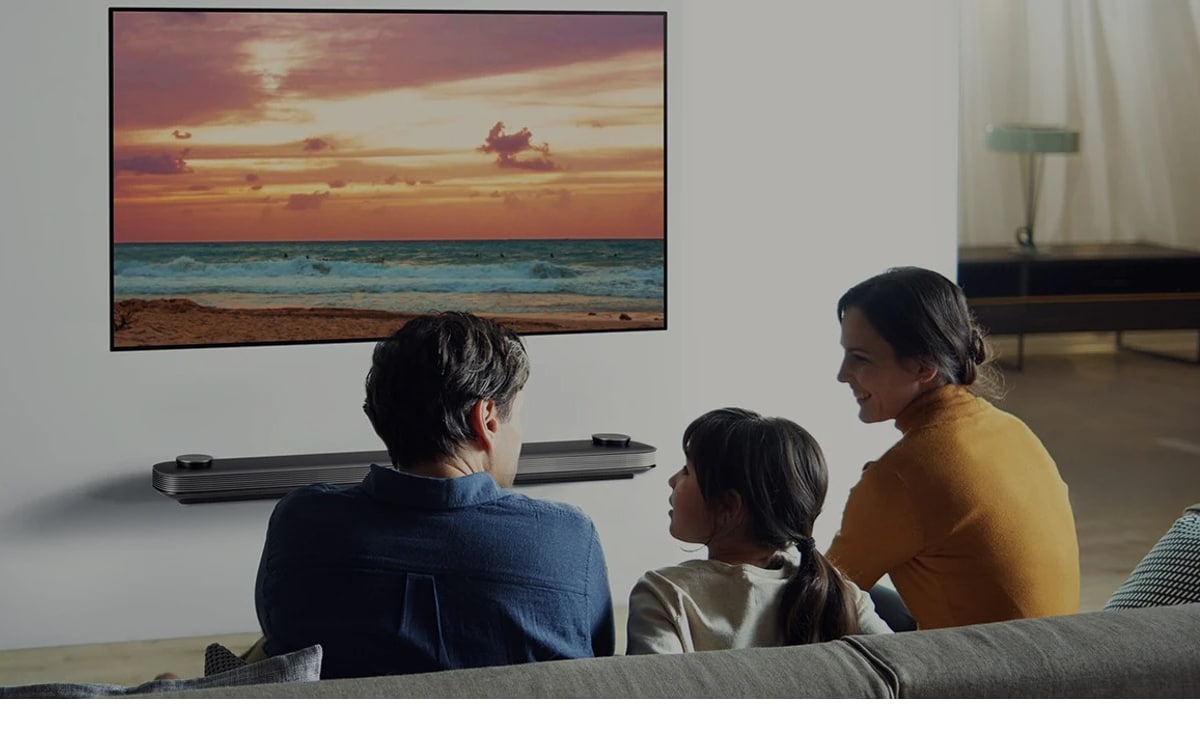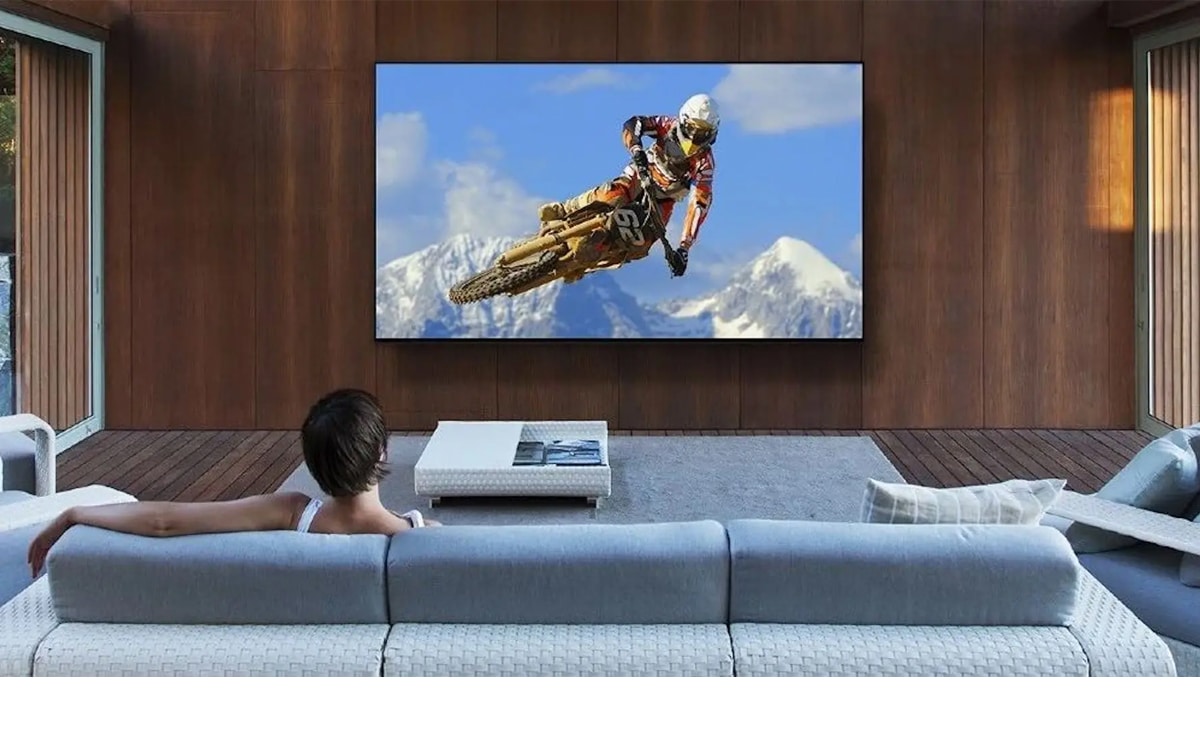However, in order to make the most of a larger screen, you need to be able to see it from a certain distance. Recently grabbed yourself a large 55-inch TV and want to know the optimal viewing distance from it? We’ve put together this handy guide to help you organise your room around a new TV, and ensure that everyone gets a fantastic view.
How Far Should You Sit From A 55 Inch TV?
If viewing a 55 inch TV screen, you should try to have at least 137.5 inches between you and the screen, which is about 11.5 feet (3.5 meters).
The reason for this distance is that it allows plenty of space to take in all of the screen’s size, without awkwardly positioning your neck.
The optimal distance for any TV screen is really easy to find! Start by taking the screen size, in inches, from the bottom left corner to the top right corner, and then multiplying that size by 1.5 to 2.5. The resulting inches are the amount of space that should be between you and the screen.
Whenever you need to work out the optimal viewing distance of a TV, all you need to do is grab the total screen size, and then multiply it from 1.5 to 2.5 times.
How Far Away Should You Sit From A 65 Inch TV?
65 inch TVs are quite significantly larger than many other TVs, so you will need to sit a little bit further away than usual.
To take in the full image of a 65-inch TV, you should try to sit around 90 and 150 inches away from the screen.
How Far Away Should You Sit From A 75 Inch TV?
To make the most of a 75 inch TV, you will need to be between 108 and 174 inches away from the screen itself.
How Far Away Should You Sit From An 85 Inch TV?
85-inch TVs are some of the largest in the market, so in order to maximise every inch, you should try to keep 120 to 198 inches between you and the screen.
Does Resolution Affect How Far You Should Sit From A Screen?
It’s important to note that the optimal viewing distance of a given TV can also be affected by the total resolution of the screen. 4K TVs and 8K TVs benefit from much higher pixel counts. This means that it is harder to spot individual pixels. This in turn means that you can more comfortably sit closer to UHD TVs than standard HD TVs. Even when sitting closer, you will not spoil the resolution.
Considering the resolution and screen size of a TV will help you pick a viewing angle that is comfortable for extended periods of binge-watching or gaming! Remember that UHD TVs can be viewed from slightly closer!
What Happens If You Sit Too Close To The TV?
You might be glad to hear that TVs don’t actually cause permanent eye damage, despite what your parents might have told you growing up. However, we should note that while a TV will not cause permanent eye loss, it can still result in eye strain.
Our eyes will naturally begin to strain if we spend too much time watching content on screens. However, the rate at which our eyes begin to strain will be shortened if we are too close to the screen.

Can A TV Be “Too Big” For A Room?
Considering that TVs look best at certain angles and distances, it is very easy for a TV to be too big for a room. Not only do you have to make sure the screen will fit through the door, but you will also have to ensure that there is plenty of space to comfortably watch for hours at a time.
If there is not enough space within your room to organise your furniture according to optimal viewing distances for a specific screen, we would strongly recommend going for a much smaller screen.
Frequently Asked Questions
Should TV Be Higher Or Lower Than Couch?
While it’s important to find a suitable viewing distance from a TV, it is also incredibly important to get the right viewing angle. If the viewing angle is skewed, it can very quickly lead to painful neck and eye strain! Generally, a TV should be placed at around eye level with the viewer on the sofa for maximum comfort.
Is It Better For TV To Be Too High Or Too Low?
Though it is always best to position a TV at around eye level to the viewer, it can still be suitable to angle the TV higher than eye level. For instance, you may want to wall-mount your TV, leading to it being a bit higher. Just ensure that you are sat in a comfortable position to avoid strong neck strain.
Should You Always Go For A Bigger TV?
The prevailing notion across many walks of life is that “Bigger is better”. However, when it comes to choosing the right TV for a space, bigger is not always necessarily better. A TV may simply be far too big for an interior space. Either it is too hard to manoeuvre the screen into the space or to find the right viewing angle.
How Many Years Does A Flat Screen TV Last?
Flat-screen TVs tend to last around 60,000 hours of total use. This is around 6 to 7 years of frequent use. However, if you are able to provide adequate care to a flat-screen TV, you can expect it to last even longer than 10 years! To help a TV last longer, make sure to lower brightness, and turn it off when out of use!





